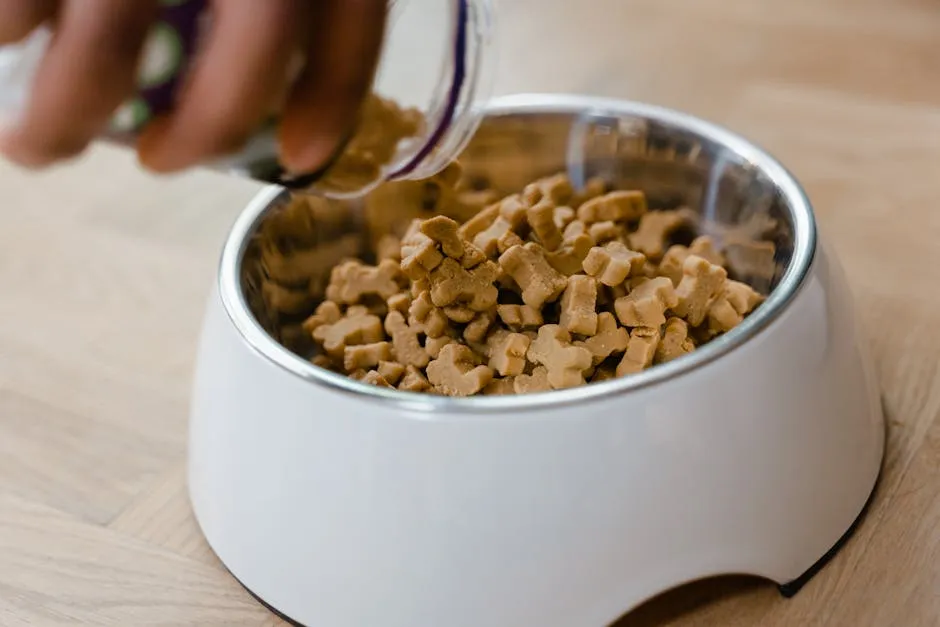Can Dogs Eat Marshmallows? Everything You Need to Know
Introduction
Many dog owners enjoy sharing their snacks with their furry friends. But can dogs eat marshmallows? This article uncovers whether marshmallows are safe for dogs and what risks they may carry. Understanding dog nutrition is essential for making informed decisions about their diet.
Summary and Overview
Marshmallows are soft, sweet treats made mainly from sugar, corn syrup, and gelatin. While these ingredients are not inherently toxic, they raise concerns for dog owners. Marshmallows lack nutritional value and can pose health risks. Excessive sugar can lead to obesity and diabetes, while some marshmallows may contain xylitol, which is highly toxic to dogs. This article will discuss the implications of marshmallow consumption, including potential dangers and safe alternatives for your pup.

Instead of sugary marshmallows, consider rewarding your pup with Zuke’s Mini Naturals Dog Treats. These little bites are perfect for training and don’t come with the guilt of high sugar content!
For more information on managing health risks like diabetes in dogs, check out Understanding and managing canine diabetes.
Are Marshmallows Safe for Dogs?
The Ingredients of Marshmallows
Marshmallows typically contain sugar, corn syrup, and gelatin. These ingredients can have significant implications for dog health. The high sugar content in marshmallows can lead to obesity. According to the Association for Pet Obesity Prevention, about 56% of dogs in the U.S. are overweight or obese. This can lead to serious health problems, including diabetes and heart disease.
Corn syrup, another key ingredient, adds to the sugar load and can disrupt a dog’s digestive system. Gelatin is generally safe but can cause gastrointestinal upset in some dogs. The lack of nutritional benefits makes marshmallows an unsuitable treat.
So, it’s important to assess your dog’s diet carefully. Instead of sugary snacks like marshmallows, consider healthier options that provide essential nutrients while satisfying your dog’s cravings.

One excellent alternative is Blue Buffalo Wilderness Trail Treats. These treats are packed with protein and made with real meat, making them a great choice for your adventurous pup!
The Dangers of Xylitol
What is Xylitol?
Xylitol is an artificial sweetener commonly found in sugar-free products, including some marshmallows. It’s a favorite substitute for sugar because it provides sweetness without calories. However, this ingredient poses a serious threat to dogs.
When dogs consume xylitol, it triggers a rapid release of insulin. This can lead to dangerously low blood sugar levels, a condition known as hypoglycemia. Symptoms of xylitol poisoning include vomiting, loss of coordination, and seizures. In severe cases, it can result in liver failure or even death.
Statistics reveal the gravity of this issue. The Pet Poison Helpline reports a significant rise in xylitol-related emergencies, especially as more sugar-free products enter the market.
If you suspect your dog has ingested xylitol, immediate veterinary care is crucial. Always check ingredient labels for this hidden danger. Keeping your furry friend safe means being vigilant about what goes into their mouth.

Additionally, consider investing in the PetSafe Healthy Pet Simply Feed Automatic Dog Feeder. This handy device allows you to schedule meals, ensuring your dog gets the right portions at the right times, without the risk of sneaky snacks.
Can Marshmallows Kill Dogs?
The Risk Factors
Marshmallows can pose serious risks to dogs. One of the most concerning dangers is xylitol. This artificial sweetener is often found in sugar-free products. Even small amounts can be fatal for dogs. Xylitol causes a rapid insulin spike, leading to dangerously low blood sugar levels. This condition, known as hypoglycemia, can result in seizures, liver failure, or death if not treated promptly.
Beyond xylitol, the high sugar content in marshmallows can lead to weight gain and obesity. Overweight dogs face numerous health issues, including diabetes and heart disease. According to the Association for Pet Obesity Prevention, about 56% of dogs in the U.S. are overweight or obese. Regular consumption of sugary treats like marshmallows can contribute significantly to this problem.
Another risk is choking. Marshmallows are soft but can be large and sticky. This combination can obstruct a dog’s airway, particularly in smaller breeds. Always be cautious and monitor your dog after any accidental ingestion of marshmallows.

To promote healthy chewing habits, consider offering your dog Nylabone DuraChew Textured Dog Chew. These durable chews keep your pup entertained while promoting dental health!
What to Do If Your Dog Eats Marshmallows
Immediate Actions
If your dog consumes marshmallows, start by assessing the situation. Check the ingredients for harmful substances like xylitol. If your dog ate a few plain marshmallows, chances are they will be okay. However, monitoring is essential.
Look for symptoms such as vomiting, diarrhea, or lethargy. These may indicate digestive upset. Should your dog display any unusual behavior, contact your veterinarian immediately. They may recommend bringing your dog in for a check-up.
If your dog shows signs of xylitol poisoning, such as weakness or seizures, seek emergency care without delay. The sooner you act, the better. Always have emergency vet contacts readily available for quick assistance, ensuring your dog’s safety.

Healthier Alternatives to Marshmallows
Dog-Friendly Treats
If you’re looking for treats that are better for your furry friend, there are plenty of delicious and nutritious options. Here are some tasty alternatives to marshmallows:
Fruits: Many fruits are safe for dogs and provide essential vitamins. Apples (without seeds) make a crunchy snack. Blueberries are packed with antioxidants. Bananas can be a sweet delight, while watermelon offers hydration.

Vegetables: Veggies like carrots and green beans are low in calories and high in fiber. Sweet potatoes are another favorite, providing a healthy dose of vitamins.
Commercial Dog Treats: Look for treats specifically made for dogs. Choose products with natural ingredients and no added sugars. Brands often offer a range of flavors to keep your pup excited. One great option is Wellness Soft Puppy Bites, perfect for your little ones!
Homemade Treat Ideas: Making treats at home can be a fun activity! Mix whole wheat flour with peanut butter and water to make tasty biscuits. You can also blend yogurt with fruit and freeze it for refreshing pops. For a simple recipe, try adding organic peanut butter to the mix!
A balanced diet is crucial for your dog’s health. Treats should only make up about 10% of their total intake. By opting for these healthier choices, you can enhance your dog’s nutrition while keeping them satisfied. Why not try out some recipes for homemade dog treats today?

FAQs
Can dogs eat plain marshmallows?
Plain marshmallows are generally safe but not ideal for dogs. They contain sugar, which can lead to obesity and dental issues. While they are not toxic, excessive sugar can cause gastrointestinal upset. Always read labels to ensure there are no harmful ingredients.
What should I do if my dog eats a marshmallow?
If your dog eats a marshmallow, first check the ingredients. Monitor for symptoms like vomiting or diarrhea. If your dog shows any unusual behavior, contact your vet. For suspected xylitol ingestion, seek immediate veterinary care.
Are there any marshmallow alternatives for dogs?
Yes, several tasty alternatives exist! Fruits like apples and blueberries are great options. Vegetables such as carrots and green beans also make healthy snacks. Consider dog-friendly treats specifically designed for their nutritional needs.
How much sugar is too much for a dog?
Dogs should have minimal sugar in their diet. Ideally, treats should make up no more than 10% of their total intake. Too much sugar can lead to obesity and diabetes, so moderation is key.
Can dogs have marshmallows in moderation?
Occasional marshmallows may be fine, but they should not be a regular treat. Factors like a dog’s size, health status, and diet matter. Always prioritize healthier options to keep your furry friend happy and healthy.
For those who want to keep their furry friends entertained, consider getting the KONG Classic Dog Toy. It’s a durable chew toy that can be filled with treats, providing hours of fun!
Please let us know what you think about our content by leaving a comment down below!
Thank you for reading till here 🙂
All images from Pexels





